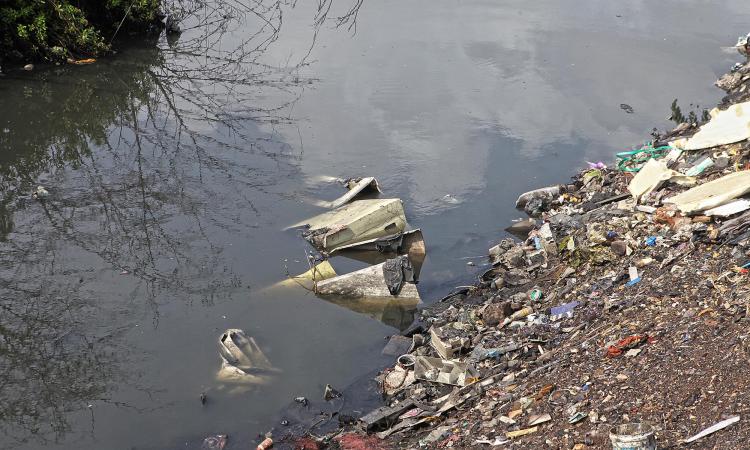
Polluted river stretches increases to 351, as against 302 in 2015
According to a recent assessment by the Central Pollution Control Board (CPCB), there are 351 polluted river stretches in the country with 45 of them being critically polluted. Although a greater focus is given to the Ganga river clean-up due to its cultural significance, the assessment revealed that there are far more polluted rivers than the Ganga in the country. Nearly one-third of the polluted river stretches are in Maharashtra, Assam and Gujarat. The assessment has highlighted four significant stretches of pollution which includes the Mithi river—Powai to Dharavi; the Godavari—Someshwar to Rahed; the Sabarmati—Kheroj to Vautha; and the Hindon—Saharanpur to Ghaziabad.
Country's overall rainfall deficit stands at eight percent
Despite floods in several parts of the country in recent weeks, India is reeling under a cumulative rainfall deficiency of eight percent. With a 23 percent rainfall deficit, the north and the northeast regions are the worst hit. Although, the overall water storage in the 91 major reservoirs across the country is 11 percent, which is more than the average of the last 10 years, there are wide regional discrepancies. While the reservoirs in the southern, central and eastern regions have better water storage than the 10-year average, the reservoirs in the northern and the western regions have less water storage.
Repeated floods cause havoc in Assam and Arunachal Pradesh
Incessant rains in Arunachal Pradesh have caused a fresh wave of floods in both Assam and Arunachal Pradesh. This is the third flash flood to have hit Assam during this monsoon season affecting six districts in the state—Dhemaji, Lakhimpur, Biswanath, Barpeta, Majuli and Dibrugarh. Although there are no deaths reported during these recent floods yet, the last two floods had claimed 52 victims and affected eight lakh people across two districts in the state. Nearly two lakh hectares of cropland have also been submerged in Assam this year.
Delhi to fund 90 percent of power component for Renuka project
The Delhi government has agreed to fund 90 percent of the power component for Renuka project over Giri river while Himachal Pradesh will enjoy the exclusive rights over the power generation. As per the 2015 price level, the total cost of the project is Rs 4,600 crore, out of which the cost of water component is Rs 4,325 crore while the power component is worth Rs 275 crore. The Centre will bear 90 percent cost of the water component and the remaining 10 percent cost would be shared by the beneficiary states as per their respective water allocations. The Centre has also agreed to pay all land acquisition costs of the project.
Mumbai’s Metro-3 project comes up at the cost of Aarey tribals’ land and livelihood
The tribal families at Prajapur Pada in Aarey Colony have alleged that the Mumbai Metro Rail Corporation (MMRC) has breached the National Green Tribunal's 2015 order that restricts the corporation to carry out several activities—debris dumping, land reclamation or tree felling—for its Metro-3 project until further hearing. The tribals have claimed that upon refusing to leave their land for the project, they are being forcefully evicted. However, the corporation has rubbished the tribals' claims of farming being done on the site and accused them of misrepresenting to the high court that they were cultivating any land in the project-affected area.
This is a roundup of important news published between September 12 - 18, 2018. Also read policy matters this week.